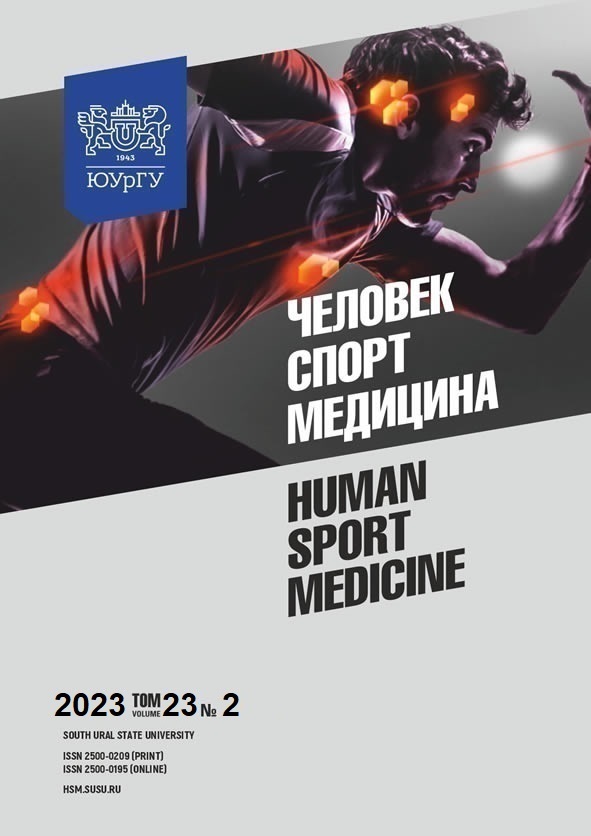DYNAMICS OF AUTONOMIC HOMEOSTASIS UNDER COGNITIVE LOAD IN SHOOTERS WITH DIFFERENT TYPES OF HEART RATE REGULATION
Abstract
Aim. This paper was aimed at identifying the dynamics of heart rate variability during a 10-day attention training program in shooters with different types of heart rate regulation. Materials and methods. The study involved 17 highly skilled shooters. The subjects were divided into 2 groups, depending on their type of regulation (group I: central, group II: autonomic). The time and frequency domains of heart rate variability and complex indicators of cognitive load were analyzed. Results. Prolonged cognitive load in group I resulted in significant changes in 11 of the 14 studied parameters; in group II, there was a significant change in only one parameter. A short-term load resulted in significant changes in 9 parameters in group I and 8 in group II. Group I was more sensitive to cognitive load and demonstrated large shifts in autonomic homeostasis. Conclusion. Significant differences in HRV dynamics under cognitive load have been established. Group I had more pronounced changes in the autonomic balance towards increased parasympathetic tone compared to Group II.
References
References on translit
Copyright (c) 2023 Human. Sport. Medicine

This work is licensed under a Creative Commons Attribution-NonCommercial-NoDerivatives 4.0 International License.















